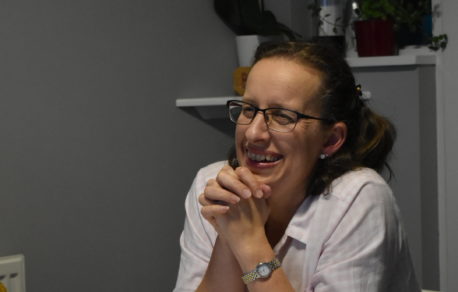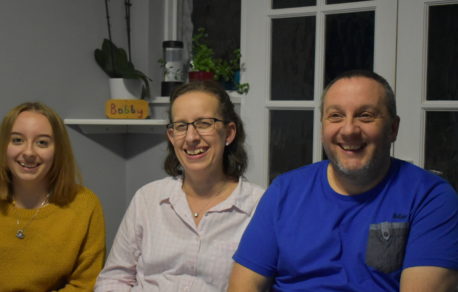
Why sleep is so important and how you can sleep better
Dr Neil is an independent sleep expert, involved in sleep research for more than 38 years. He’s also the Director of Sleep Science at Sleepstation, and the host of our monthly sleep webinars.
Good sleep is good for you
It’s thought that approximately 10% of people have a sleep problem at any one time and in a particular year and that 30% of people will suffer from poor sleep. But good sleep is vital for strong physical and mental health and central to emotional wellbeing. It’s the very foundation of living a happy and healthy life. Good sleep plays a role in every part of our lives from learning a concerto to chopping a cucumber and from getting on well with our partner to flying an aircraft.
How sleep can boost your brain power
To get through the day as productively as we can, we rely on higher-order cognitive processes such as reasoning, critical thinking and problem solving. These processes (also called ‘Higher order thinking’) are associated with a specific part of your brain – the prefrontal cortex. The prefrontal cortex appears to be particularly sensitive to sleep deprivation meaning that these processes will be negatively affected when we sleep badly and boosted when we get adequate good quality sleep.
Put simply, a good night’s sleep provides your brain with the boost it needs to have you firing on all cylinders the following day.
Sleep, in particular our deep Slow Wave Sleep, is known to play a key role in processing the information you receive during the day, in laying down your memories and helping you to learn new tasks. Sleeping well works wonders. By contrast, a long-term lack of sleep can cause all kinds of problems.
Poor sleep is associated with an increased risk of heart disease, stroke, stomach problems, depression, certain cancers, falls, Alzheimer’s, obesity and Type 2 diabetes. A lack of sleep can also reduce your immunity.
Keeping tiredness at bay
In an ideal world, you’d work at the times when you’re most alert. In the real world that’s not always possible. So what can we do to limit the fatigue associated with modern-day life?
If you simply can’t catch up on all the sleep that you need then caffeinated drinks, regular exposure to daylight and 20-minute power naps might improve your alertness and boost your performance. But think of these methods as a quick fix rather than a long-term strategy. As we know, nothing beats good sleep.
Sleep as a stress reliever
Stress causes sleeplessness and sleep relieves stress. The two are interlinked and impossible to separate. You see, stress puts your body into a state of high alert. Once you’ve reached that level it’s difficult to wind down and you’ll find it hard to fall asleep. But you almost always feel less stressed following a good night’s sleep. Sleep is one of the most effective ways to reduce stress.
How has the pandemic affected sleep?
Unsurprisingly, the global pandemic has had a negative impact on some people’s sleep. Increased anxiety — brought about by Covid-19 itself and the knock-on effects of job insecurity, an uncertain financial future and a lack of socialisation — has affected sleep.
In addition, working from home has turned many of our lives upside down. It may be that you’re not getting the same amount of exercise or exposure to natural light now that you’re no longer working away from home. Missing out on both can affect your sleep.
Or it may be that working from home means you’re finding it increasingly difficult to separate the professional from the personal. You might be waking up and immediately checking emails or going to bed with your tablet and spreadsheets for company.
If you want to sleep well then reserve your bedroom for sleep. Or, if you need to use your bedroom as your home office, reserve the bed for sleep.
Ideally, the bedroom would not be a place of work. It should be a place that’s separate from the worries of the day (a sanctuary) and somewhere that allows you to wind down, relax, rest and recuperate.
Of course, the pandemic has also had a positive impact in terms of persuading many of us to reassess our lives and focus on striking a better work-life balance. Working from home has enabled many of us to ditch the early commute and avoid those energy-sapping late nights. We’re finally getting the sleep we need, when we need it.
But will this become the new normal — for better or worse? Probably not. Our sleep habits and patterns reflect centuries of evolution and an isolated pandemic isn’t going to change things overnight. There’s no doubt that Covid-19 has caused increased levels of anxiety but once we’re able to control the virus then we’ll be able to better control our sleep.
Losing sleep over losing sleep?
Insufficient sleep affects much more than your health and productivity. It’s also associated with:
• low mood
• increased conflict in your relationships — both personal and professional
• a reduction in your empathy
• poor self-esteem
• a perception that you’re less healthy and less attractive than you really are
• increased consumption of sugary and fatty foods leading to weight gain and potentially obesity
• an increase in risk-taking behaviours — including not getting enough sleep.
Studies have shown that your sleep quality may influence the response to vaccines prior to vaccination.
Data concerning the Covid-19 vaccine and sleep is not available but research on other vaccines suggests that adequate sleep is essential for optimal effectiveness.
One study from the University of Pittsburgh showed that there was a 56% increase in antibody response to the hepatitis B vaccine for each additional hour of sleep. It found that participants who slept for fewer than six hours were 11.5 times more likely to lack protection from the vaccine compared with participants who slept for more than seven hours per night.
Another study from the University of Chicago, comparing the immune response to the flu vaccine, found that the sleep-deprived test group had less than half the antibody level against the pathogen compared to the well-rested individuals.
So how do you achieve better sleep?
It’s a good question. And, of course, there are several contributing factors. But the three things that can consistently help you to get a good night’s sleep are:
• a bedroom conducive to sleep
• a relaxed body
• a quiet mind
Your bedroom should be a sanctuary for sleep. It needs to be dark, quiet, cool, comfortable and well ventilated. Your bedroom is your sleep room and not your games room, cinema or office. Ideally, there should be nothing in your bedroom that might deter sleep. That means no computer, phone or tablet.
Then there’s how you feel before bedtime. Your body needs to be relaxed in order to get good sleep and physical or mental exercise during the day can help.
But what about your mind? The most important thing you need for sleep is a quiet mind. But how do you achieve a state of complete mental relaxation? Find out what works for you and settle into a familiar and comforting routine. Just don’t think about work in the last few hours before bed. It’s bound to set your mind racing when you should be relaxing.
Make sure you set aside the stress and worries of the day at least an hour before you turn out the lights. And if you do have something on your mind then write it down for the following day (it’s also a good idea to keep a pen and paper beside the bed so that you can capture those brilliant thoughts in the middle of the night without worrying about whether you’ll remember them again in the morning!).
Still struggling to get a good night’s rest? Don’t sleep on it.
Determine how many hours of sleep a night you need to be at you best and then set aside the time to get it. Getting enough sleep isn’t always easy. You might need to make some tough decisions in order to achieve your goals.
If you have had difficulty getting to sleep — or staying asleep — for four weeks or more then you should contact Sleepstation. Their sleep team will work with you to pinpoint the causes of your sleep problem and support you to implement solutions to improve your sleep. Because we know how important sleep is, we’ve partnered with Sleepstation to provide free access to their clinically validated online sleep support service for engineers. You can register for a detailed sleep assessment and support here.
If you wake up feeling unrefreshed most days and it’s beginning to affect your general health then you should also talk to your doctor.
Sleep better, live better
Sleepstation provide a clinically validated sleep improvement programme that’s been proven to resolve even the most severe sleep problems with a matter of weeks.
They’re experts in this field and combine psychology and sleep science with dedicated support to help people restore their sleep.
Create an online account today to get instant access to their sleep support programme. Within a few hours you’ll be assigned to a dedicated team of sleep coaches to support and guide you.
Your sleep coaches will work closely with you to pinpoint the causes of your sleep problem and highlight the solutions. They’ll also formulate an effective, evidence-based, multi-step plan for you to follow.
Access to our sleep support is fully funded for IET members. Visit www.sleepstation.org.uk/foothold to find out how we can help you.


